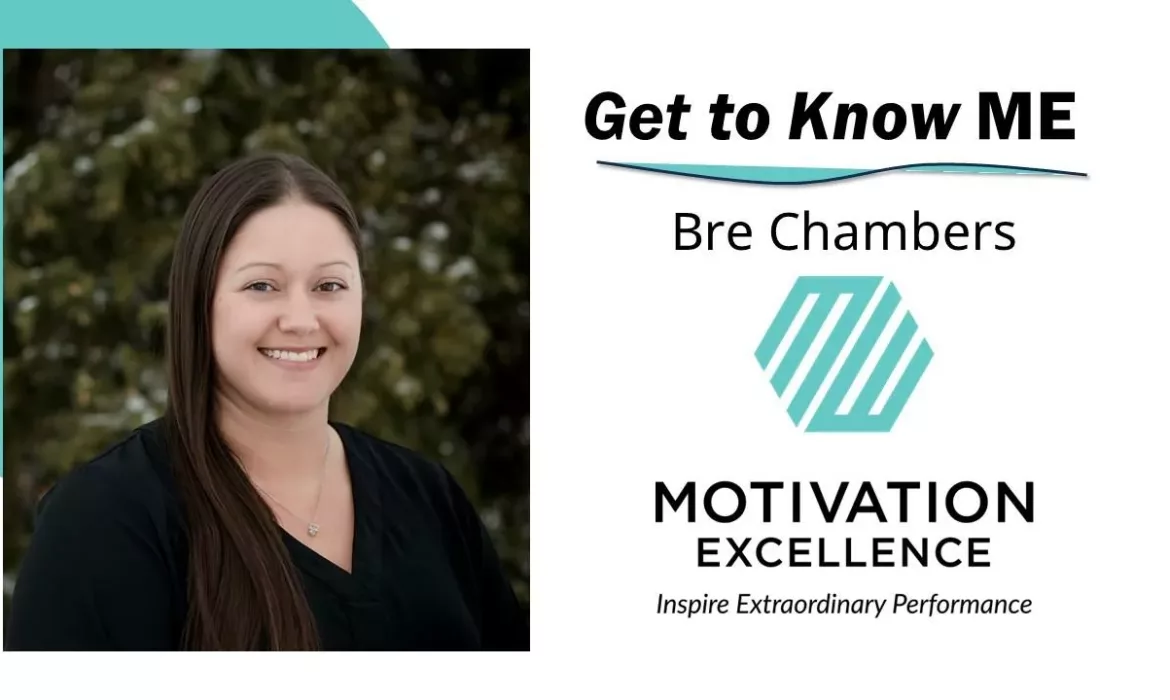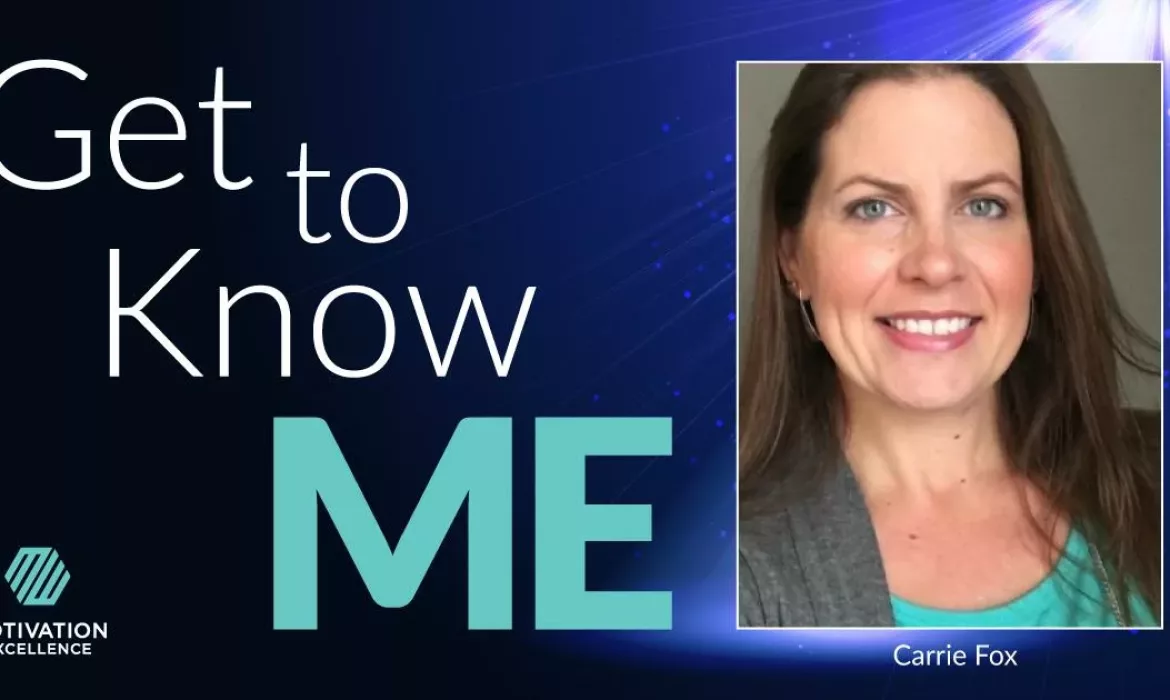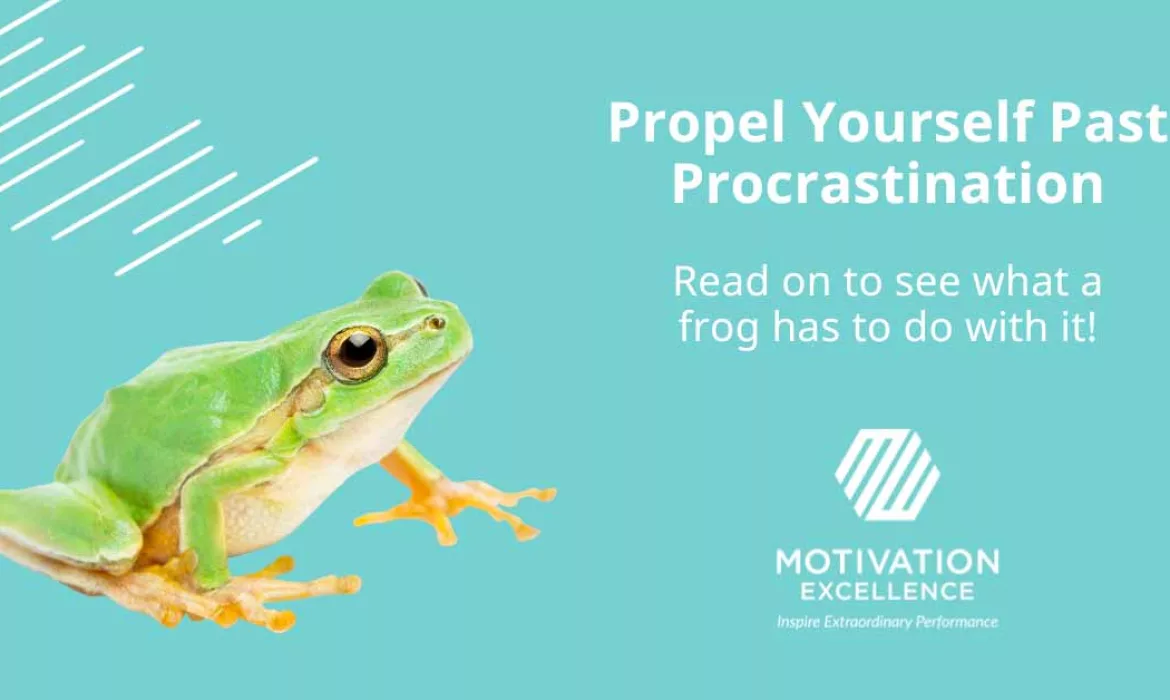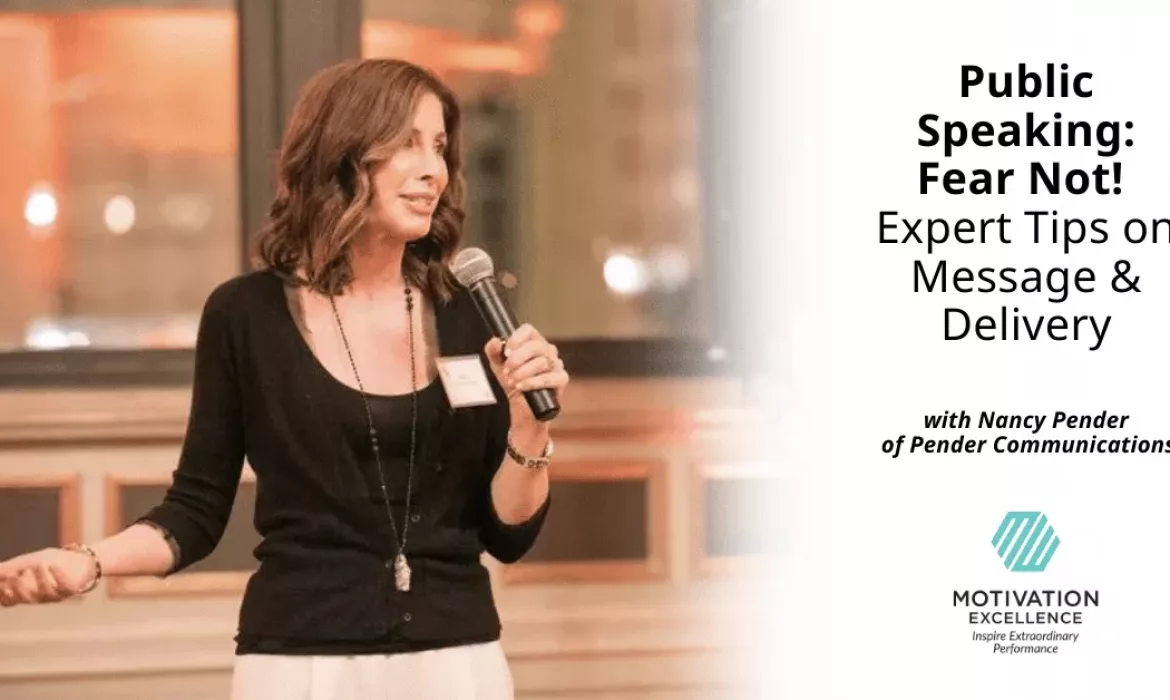Make Reflection a Reflex All Year Long
December is a natural month to look back at your year and take note of the good, the bad and the ugly. Reflecting much more often, though, is associated with many benefits for your personal and professional worlds. Let’s dive into this amazing soft skill that can create waves of positive changes when incorporated regularly into your life.
Create a Better You
Betterup.com writes that the value of self-reflection is its ability to show you what’s working well in your life, as well as what needs to be adjusted. When we reflect, we’re really letting our internal emotions, behaviors, and motives stare straight into a mirror only our mind can see. It can be daunting, especially when we reflect on situations that made us angry, sad or generally uncomfortable. But confronting those times is critical to understanding how to navigate them more smoothly in the future. You get a fresh perspective without the intense feelings, which helps facilitate a better understanding of what happened and why you reacted the way you did.
The Better Up article tagged above is full of self-reflection questions to ask yourself, prompts to ignite inner thoughts, and tips on how best to use reflection as a great tool for better self-awareness. In fact, self-awareness (we wrote about it before) and self-reflection go hand in hand.
Make It Your Business Model
Harvard Business Review published an article describing research that shows the ability to reflect well separates the extraordinary professional from the mediocre. Without reflection, other soft skills like empathy, emotional intelligence, and communication will fail to be as impactful. By the way, these are key indicators of a person’s potential to be a great leader.
HBR regular contributors James R. Baily and Scheherazade Rehman asked 442 executives to reflect on instances that most advanced their professional development. With great candor, they spoke of both the embarrassing and the triumphant. Baily and Rehman found that three sentiments were repeated most often and had the most value for career growth:
- Surprise – the unexpected, good or bad, is always worth reflection
- Failure – public (and private) mistakes offer learning opportunities
- Frustration – delays in meeting a goal can lead to improvements
Overall, being able to recognize when things didn’t go well, AND celebrate when they did, creates opportunities for learning, innovating, and improving. Perhaps your company does performance reviews at certain intervals. This is a type of reflection that can generate discussion, goal setting, and course-correcting, and when done well, it can build a stronger relationship between managers and their teams.
Reflection in Practice
We know why reflection is important, but how do you implement it in a meaningful way? There are some general tips for starting and continuing this beneficial habit.
- Keep a journal and review it at solid intervals. It could be daily, weekly, monthly or quarterly, but it’s important to capture your reflections as they happen so you remember the circumstances clearly.
- Leave space to add retrospective notes to your journal. Hindsight being 20/20 is a side effect of reflection and a great way to grow or improve.
- Practice gratitude daily. Reminding yourself of your blessings helps bring positivity to all you do. Having a positive outlook creates a chain reaction of good feelings which can help most situations you encounter.
- Set goals so you know what you’re working toward and can measure your progress as you reflect on each step. What worked? What didn’t? Any unexpected realizations?
The words “reflect” and “reflex” are homophones. They don’t mean the same thing, but they can work together well. As you start to make self-reflection part of your daily toolkit, remember this sentence: She reflects so often, it’s become a reflex in most situations. That’s the goal! Make reflection an automatic reaction to master this method of self-improvement. Good luck!
Make Gratitude Your Attitude All Year Long
In the United States, November is the BIG month for gratitude, with Thanksgiving starting off the holiday season through the end of the year. But research shows living a life of thankfulness ALL year is truly beneficial to your health.
Robert Emmons is the leading scientific expert on gratitude. Through his research, he and his team found that being grateful:
- Boosts your immune system
- Lowers your blood pressure
- Helps elevate your mood
- Allows you to celebrate the present
- Blocks negative emotions, like envy, resentment and regret
That’s a long list of attributes! Plus, think of the lift it gives to the people whom you show your gratitude. Like most positive traits though, it does take practice for most of us.
Make Gratitude a Habit
The more you do something on a regular basis the more ingrained it becomes in your life. Being grateful can go from a few-times-a-year practice to a habit with a little bit of conscious effort. Emmons recommends keeping a grateful journal. In it, you’d keep a running tally of the reasons in your life you have to be thankful.
There are a bunch of other ways to practice gratefulness in different situations. Below is a list of some ideas. Click on the links to get more details and even more ways to practice.
University of Minnesota Ten Ways to Become a More Thankful Person
Change your perspective – Bummed that you’re hobbling around in a boot after spraining your ankle? Put yourself in the figurative shoes of someone who is non-weight bearing for six weeks and is struggling with crutches, or the unlucky person who broke both legs and is confined to a bed or wheelchair. There’s always someone worse off than you. This can help you feel grateful for only having a minor inconvenience.
Use technology to share – Stuck on your laptop? Tethered to your phone? Set a reminder to send a message of thanks to someone in your life at least three times a week.
Appreciate the good times – If you find yourself enjoying a moment, take note of it and the physical and physiological sensations it brings. Does your face hurt from laughing? Is your chest bursting with pride? Are you overwhelmed with a feeling of love? Relive it as you fall asleep, or the next time you need some inspiration to be grateful.
Headspace How to Be More Grateful
Meditate – Take some time to ask yourself who or what you are most grateful for in your life. This can be done in short stints as you encounter difficult or challenging situations. Take a minute at your desk or in the quiet of your car. You can focus your meditation on your life in general, or specifically what you’re thankful for at that moment.
LifeHack – 40 Simple Ways to Practice Gratitude
Share acts of kindness – Whether it’s holding the door for the person behind you, paying a stranger a compliment or buying lunch for the person behind you in line, acts of kindness build a sense of gratefulness in you and others.
Use social media – Let’s face it, most of us are on it more than we intend, so use it as a space to acknowledge your blessings. Tag someone if they’ve done something to help you. Give a shoutout to a long-lost friend who once had a more prominent part of your life. Start the day with a list of three things you’re recently grateful for.
Working Together Multiplies Gratitude
Volunteering for charitable organizations is a great way to express your gratitude for what you can give to others. And working with a group, whether it’s your coworkers, friends from church or total strangers with a common desire to help, can create an explosion of good feelings! When you see a need and can help fill it, you are living in the moment and appreciating the life you have.
At Motivation Excellence, supporting a variety of charities is central to our core. We organize many on-site and off-site activities centered around helping others throughout the year. We also give each employee two days off each year to dedicate time to favorite worth-while causes. The two links in this paragraph will give you a lot of ways on how to incorporate charitable events and volunteering at your place of business.
Don’t Keep Quiet
We are often reminded of how grateful we are to have someone in our lives AFTER they’re gone. Remember to tell people while they’re alive how much they mean to you. Call your parents and grandparents more often. Tell your friends what they mean to you when you’re together. As you give a hug goodbye let people know that you appreciate them and what they do for you.
The great thing about gratitude is it’s free to share and easily gains momentum. It all starts with a thank you, a kind gesture, a compliment or even just a meaningful smile. The chain of gratefulness can grow, and that wonderful feeling of appreciation can spread to people you’ve never met. So, today, be the one who puts the “great” in grateful by being the example others can copy and share!
Get to Know ME with Bre Chambers
Bre Chambers is not a fan of being recorded, but she knocked our Get to Know ME recording out of the park this month! Be sure to watch her two-minute video and read below to get to know more about our spirited Travel Coordinator out of the Traverse City office. Thanks, Bre, for sharing how you ended up in the incentive travel industry and the brilliant photos of some recent hiking adventures (can only be seen in the video – what are you waiting for?)
What’s your current title and how long have you been in the incentive industry?
I am a Travel Program Coordinator and have been in the incentive industry for 6 years in various positions.
What do you like about being a Travel Program Coordinator?
I like seeing the program through from start to finish and working out all the details to ensure everyone has a great experience.
What’s something you want to share about the people you work with at Motivation Excellence?
We have a great team built from years of experience with a vast array of skills.
What’s a specific moment in your history that always stands out as a defining moment, and why?
I’d have to say having the opportunity to experience an incentive program as a participant before I knew this industry existed. It brought me back to Traverse City and introduced me to my career.
What do you enjoy doing outside of work?
I love to travel and tend to gravitate toward hiking destinations with beautiful views.
One thing that always makes you laugh is?
Getting together with friends; we all share the same sarcastic humor.
What’s a bucket list item you can’t wait to cross off?
I’ll be crossing off Banff, Alberta, Canada next summer! This trip was originally planned for the summer of 2020 so I’m excited to finally get this one checked off the list.
This month, our theme for social media is Perception. How do you adjust perception either on how you think of someone or something, or how they perceive you? Is perception important?
Perception plays a huge role in how we interact with the world, on a large scale but also in every day-to-day interaction. I find talking through things helps me see situations from a different angle.
Making Perception Corrections: How to Turn that Frown Upside Down
Perception is more than a visual sense. Is the Uno card showing a 6 or a 9? You know that where you’re sitting in relation to the card might change what you see. And while visual perception is important (there’s credence to the saying, “Dress for the job you want”), how your gut instinctively feels about your environment and the people around you says a lot about your mindset. How people feel about you can limit your opportunities or push you to a whole new level. This blog is about changing perceptions when needed—yours and theirs.
Change Your Own Perceptions
You wake up and stub your toe on the bedside table. Do you immediately think, “Oh, it’s going to be THAT kind of day?” Now, you’re just looking for bad things to come your way, and you feel vindicated as they do. “Well, I knew when I woke up this day was going to suck.”
If you stub your toe and think, “Shoot, that hurts, but I’m not going to let it dictate the rest of my day,” you haven’t committed yourself to looking for more negatives. Going a step further, actively looking for the good things will help you find the good things. When you actively challenge your perception of a situation or person, you’re giving yourself the chance to change it too. Medium.com gives some other tips to help you turn the tables on your inner feelings:
- Count your blessings
- Be purposefully aware of how you internally react to your environment
- Learn from the past and move on
When you look in the mirror, do you study your flaws or smile at your attributes? For the next week, make a conscious effort to start each day by naming at least one nice thing about yourself: physical, mental or otherwise. Try thinking, “I have a nice nose,” or “I’m a great listener,” or “I am good at including people.” You might be surprised to find you have more good days than bad AND other people will notice and see you in a more positive light too!
Change People’s Perception of You
If you’re self-aware, you likely have a pretty good idea of what people think of you. Sometimes, it’s a positive assessment, which is obviously great; no change needed. But, what if you sense the opposite—or someone flat out tells you—they think you’re bossy or you don’t contribute ideas to a brainstorming session. These perceptions could cost you a friend or a job. If you believe they’re misperceptions, a change of direction is warranted ASAP.
VantageLeadership.com suggests communicating your intentions is imperative. Perhaps you noticed no one stepped up to take the lead on marketing materials for a new product, so to get everyone started, you delegated tasks out like a blackjack dealer. You meant to start momentum, not boss people around. For our second example above, maybe your ideas are continually shot down so you became afraid to speak up. You intended to be an active listener instead, but it wasn’t seen that way.
Garflinkle Executive Coaching offers other ideas to get people to see you differently:
- Be aware of how your behavior affects others
- Ask for feedback
- Be your own cheerleader
- Be open to changing tactics
It’s been said that perception is reality. If you think of yourself as confident, successful and relevant, others are more likely to see you that way too. If people see you as stuck-up or a constant downer, you’ll have a hard time making friends. If you know how people perceive you and don’t like it, you can take steps to change your behavior. It’s not an overnight journey, but each time you challenge someone’s perception of you with a positive change, it helps them build a new image.
Find Your Balance
On the flip side of this discussion, we could ask, “Should I really care what someone thinks about me?” No one should base their daily existence on being seen in the best light by everyone at all times. There are going to be people you can’t sway to like you no matter what. The trick is to find a natural balance between making positive changes that help you achieve your goals and knowing who you are at your core and being okay with not everybody liking you.
With all that said, developing a positive outlook (but not toxically positive—it’s a thing!) is a great goal for all of us. It certainly helps boost our mood and smooth over some of life’s inevitable bumps and holes. If you can believe it, you can perceive it (or maybe the other way around?).
Good luck!
An Easy Read on Having Difficult Conversations
We’ve all been on the receiving end of heart-plummeting conversation starters like:
“We need to talk…”
“Please come into my office for a few minutes…”
“There’s something I need to tell you…”
“Close the door behind you…”
Did your tummy get a little queasy reading any of those? While the recipient legitimately can feel instant apprehension upon hearing someone say those words, the speaker has probably been reeling from internal turmoil leading up to the conversation for quite some time. If you’re in need of having a difficult conversation, what are the best tactics to employ so everyone walks away feeling, at the very least, less sick to their stomachs?
Just Do It
First of all, if you’re uncomfortable about something, Entreprenuer.com says to recognize it as a signal that a good, albeit hard, conversation needs to happen. The author says these talks are about learning, not winning.
Harvard Business Review published tips on tackling challenging situations, especially for conflict-averse individuals. They include:
- Don’t push it off
- Don’t worry about being liked
- Be direct and respectful
Using active listening skills and conflict resolution strategies can be critical to the outcome too. Goals for a positive result, according to Psyche.co, is to find:
- a solution,
- a plan, or
- an understanding
Even though you’re wading into murky waters, keeping a proactive outlook will help steer the conversation to a safer harbor.
Think of the Positives
Mindset has a key role in how a critical talk plays out. The University of Delaware suggests looking at the positives from the moment you decide to engage someone in a potentially uncomfortable confab. One way to do that is to forecast the outcomes you hope to see, such as:
- Resolving a problem
- Embracing constructive change
- Gaining a better understanding of a person/situation
- Repairing valued relationships
If a relationship, job or project is worth having, it’s worth the few moments of uncomfortable uncertainty that come at the onset of a dreaded discussion. If you focus on the hopeful result, you’ll set yourself up with “good vibes momentum” that your conversation partner will feel. In addition, it could acknowledge the “elephant in the room” you were both feeling, giving you credit for getting it out in the open.
That Sense of Relief
Some people put off going to the doctor or dentist only to realize after it’s over, that it “wasn’t that bad.” (How often do we say that to our kids about a shot?) It’s natural to build up worst-case scenarios in your mind when it comes to things we just don’t enjoy doing. And for many people, putting your own emotions on display while knowing you’re likely to be the reason someone else’s emotions erupt can be daunting at best.
Reality is often much easier and more resilient than you anticipate. Have faith that you are putting in effort, coming from the right place and looking for a better future when you embark on your next difficult but critical conversation. Hopefully, this blog has given you the motivation and tools to calm your gut and lead with your heart. Good luck!
Get to Know ME with Carrie Fox
Carrie Fox is a repeat employee, and we’re sure happy to have her back as a coordinator in our travel department! She’s our focus for this month’s Get to Know ME segment. She’s crafty and grateful and full of good vibes! Thanks, Carrie, for sharing your thoughts on our monthly questions. 😊
What’s your current title and how long have you been in the incentive industry?
I’m a Travel Program Coordinator. I started at Motivation Excellence in 2001 and worked until 2011, then took a break to become a full-time mom. I returned in November 2021 and am so happy to be back!
What do you like about being a Travel Program Coordinator?
Every day is a little different. I love the conversations I get to have with participants and hearing about how excited they are about their upcoming travel experiences! Most are super appreciative of the time I spend on the phone assisting them in any way I can. I also love that every program teaches me about different areas around the world; it’s always fun learning about new places I’ve never been to.
What’s something you want to share about the people you work with at Motivation Excellence?
Since I was here for ten years before this recent stint, it’s great to reconnect with the long-timers. It’s like we picked up right where we left off! I’m also getting to know some of the people who started while I was gone, and everyone is so welcoming and nice.
I was with Motivation Excellence through some pretty big events in my life; celebrating with my team when I turned 21, getting married and having a baby (all back in the 2001-2011 time). It’s like one big family and I’m so grateful to be around such a great group of co-workers and friends! So many inspiring people who make me want to be a better person and try harder to accomplish the most out of life.
What’s an unknown or odd talent you have?
I make the BEST chocolate-covered treats—like chocolate-covered Oreos, pretzels, and Rice Krispies to name a few. I love making them for birthdays, graduations, weddings and everything in between!
What motivates you to accomplish things in your life (work or personal)?
Once I set my goals, the sky is the limit, and nothing gets in my way of accomplishing them. Surrounding yourself with like-minded people who also want to achieve the most out of life is really important.
What do you enjoy doing outside of work?
I love making crafts: anything from wood signs to sewing projects, and of course making chocolate-dipped treats (see photos above). Also, I’m a Team mom for my son’s travel baseball team.
One thing that always makes you laugh is?
Laughing is infectious, if you start laughing, I will start laughing.
What’s a bucket list item you can’t wait to cross off?
Going on a cruise.
This month, our theme for social media is dealing with difficult conversations. When you know you have to have one, how do you prepare?
I take a deep breath and choose to stay calm. I try to be open to hearing what the other person has to say, and I make sure I’m being very clear.
Get to Know ME with Patty Armstrong
Welcome to this month’s edition of Get to Know ME! We’re spotlighting Patty Armstrong, out of our Traverse City office. Patty is succinct, organized and always ready to be a team player. The cherry on top? She’s an easy smiler! Watch her short video (told you she’s succinct) and we bet you’ll smile along with her! Thanks, Patty for sharing a bit about your life with us this month (and the nautical trivia).
What’s your current title and how long have you been in the incentive industry?
I’m a Travel Program Manager. I’ve been in the incentive industry for 25 years.
What do you like about being a Travel Program Manager?
I really enjoy meeting and working with people from different countries.
What’s something you want to share about the people you work with at Motivation Excellence?
Everyone is like family!
What’s a specific moment in your history that always stands out as a defining moment?
Moving to Northern Michigan from the city.
What’s an unknown or odd talent you have?
Hard to say. I like to think I am diplomatic.
What motivates you to accomplish things in your life (work or personal)?
Keeping both well organized.
What do you enjoy doing outside of work?
I enjoy boating, gardening and reading.
One thing that always makes you laugh is?
My dogs make me laugh!
This month, our theme for social media is Procrastination. What are your tricks to use when you need to make sure a task gets done on time?
Lists! I adore them and use them frequently.
Propel Yourself Past Procrastination
It feels odd that a word with “pro” at the very beginning is actually not a positive. Procrastination is definitely not a word associated with any kind of desired behavior. And if you’re not a PROcrastinator, does that mean you’re an ANTIcrastinator? Something to think about as you read this blog and avoid the next item on your to-do list. 😉
Procrastination is a habit that can be broken with the right mindset and psychological tools. CollegeData.com says the first step is to admit you’re doing it in the first place. Why you’re doing it is a great follow-up. Is the task too large? Too boring? Too easy to put off because you don’t have a critical deadline? Sometimes fear of failing can also trigger a delayed response.
Procrastination Is an Active Choice
Mindtools.com shares that procrastination can often make us feel guilty or ashamed. Sometimes those feelings snowball and we’re stuck in a cycle of growing desperation and plummeting self-worth. Yuck! It’s definitely best to tackle tasks in a timely manner. Their article suggests several ways to stop and overcome procrastinating on a project-by-project basis.
- Break larger endeavors into smaller chunks
- Develop and stick to a schedule
- Change your environment if it’s distracting
- Ask a friend to check your progress
- Motivate yourself with a worthwhile reward
Many of these tips are also great for meeting goals. Below is a snippet from our blog on reaching goals (January 2020). This specific analogy has really stuck with me since that writing (mostly because it’s gross, but also because it’s true). Meeting goals and fighting procrastination have many similarities.
Send Your Stock Soaring
Time Management is also a critical tool to overcoming procrastination. Creating a to-do list, avoiding multi-tasking and establishing a routine are all good practices to embrace when you find yourself pushing a task off multiple times.
The results of getting your work done on time are multi-faceted! You’ll be seen as someone who is:
- Trustworthy
- Responsible
- Goal-oriented
- Productive
Those attributes will help your self-esteem rise!
We all deal with periods of procrastination in our lives. The goal should be to minimize it as much as possible. I’m trying to lead by example. Often, my blog writing gets pushed off until the last week or two of a month. I thought it was most appropriate, with this topic especially, to get it done in the first week of this month! My reward will hopefully be more engagement with it throughout August. If you liked it, please share it on your social channels. Don’t delay – it could help one of your friends go from procrastinator to anticrastinator! 😊
Get to Know ME with Trisha Neff
This Get to Know ME segment features Trisha Neff from our Traverse City office. Once you read this blog you’ll know who to go to for 1. A scary movie, 2. A great book, and 3. A laugh! Thanks, Trisha, for sitting down for a recorded interview too! Between speaking Mandarin and performing in multiple choirs, it’s been really fun getting to know you!
What’s your current title and how long have you been in the incentive industry?
My title is Tech Project Manager, and I’ve worked here for 25 years, starting in 1998 at VIKTOR when it was “Viktor Weyand Travel Service.” And now roughly 18 months as a Motivation Excellence employee when VIKTOR was purchased.
What do you like about being a Tech Project Manager?
I like the variety of things I get to work on, along with learning about our clients’ programs and the exciting destinations they’ve selected. Probably my favorite thing is when our programmers develop a new tech product (or enhance an existing one) that improves our internal efficiency and enhances the traveler experience in some way.
What’s something you want to share about the people you work with at Motivation Excellence?
I am lucky to work with this group of kind (and hilarious) people. They’re always ready to help out, hand out chocolate as needed, and pull together as a team during crunch times.
What’s a specific moment in your history that always stands out as a defining moment?
In 1987-88 I spent a year in Taipei, Taiwan between undergrad and graduate school. It was the first time I had traveled alone and had to rely on myself for everything, including communicating solely in Chinese! I learned I could handle anything, and it turned out to be one of the best years of my life.
What’s an unknown or odd talent you have?
Well, I guess it’s speaking Mandarin, and the general ability to learn languages pretty easily. And is this a talent? (I’ll go with YES): I am a Halloween super fan and LOVE scary (not gory) movies. Ask me for movie recommendations anytime!
What motivates you to accomplish things in your life (work or personal)?
I like the feelings of accomplishment that come with doing a good and thorough job, no matter what I’m working on. While I may not be “the best” at something, I will work hard to understand it and master it to the best of my ability.
What do you enjoy doing outside of work?
During the short summer months in Northern MI: going to the beach, enjoying outdoor concerts, and reading a million novels on my screened-in porch – please ask me for book recommendations! In the fall/winter: singing in multiple choirs, knitting by the fire, binging the hot new streaming series, and game nights with friends. And now that I work part-time, I volunteer at a kitten rescue. (When I come home, my husband asks me to empty my pockets. 😊)
One thing that always makes you laugh is?
My friends! I’ve had the same two best friends since junior high school, and they can easily make me cry-laugh. Well, all my friends can do that, as can my husband.
This month, our theme for social media is Public Speaking. When you have to get in front of people to speak, are there any things you definitely do to prepare?
I have occasionally terrible stage fright, and that includes public speaking. So, for a choral performance or public speaking, for me, preparation is key. To have some kind of comfort level, I must have all the music practically memorized. For public speaking, if I’ve had time to rehearse what I’m going to say, I will be much calmer and do better. Also, I learned from the Brady Bunch to imagine the audience in their underwear…
Public Speaking: Fear Not! Expert Tips on Message & Delivery
Public speaking. Do those two simple words together make your stomach plunge and your throat tighten? It’s one of the most commonly reported “biggest fears.” Psycom states glossophobia affects up to 75% of the population! And even that other 25% still have some trepidation, if they’re at all human. 😊
Nancy Pender is no stranger to being in front of an audience. As a Peabody and Emmy-award-winning TV journalist, she was last an anchor and reporter in Chicago before segueing to a career helping professionals hone their communication skills to be more effective on the job. Pender Communications is an executive and media communications consulting company, specializing in a variety of skill sets including speech preparation, DIY sizzle reels and media interviews. As the founder, her aim is to help business professionals craft and deliver meaningful messaging, with the latter pulling a significant amount of focus.
“When I’m hired to help a client craft a speech or PowerPoint presentation, I also work with them on delivery skills. Words are important, but it’s how we deliver those words that has the most impact on an audience,” Pender says.
She obviously runs into a good number of clients who have a hate-hate relationship with the delivery part. For many of us, it’s due to past experiences that didn’t end well. Any of these situations feel painfully familiar?
- Being thrown into the spotlight with no prep time
- Technical difficulties took center stage
- No one listened, and instead kept right on talking to their friends
- Literally lost your notes and thus lost the audience
- Didn’t practice enough so had to rely on reading instead of engaging with the audience
Luckily there are ways to overcome many of those stumbling blocks. Depending on your environment and message, some or all of the following can be helpful:
- Practice, practice, practice – if you know your message really well, you can overcome losing your notes or having a teleprompter go down.
- Record your practices and look for: places to take a natural pause, whether your gestures are too much or too little, and the appropriate use of facial expressions.
- Bring visual aids or something else to grab attention, especially right off the top. Do you play a handheld instrument? If appropriate, 30 seconds on a trumpet will get all eyes on you!
- Find the supportive faces in the audience and use them like they’re your partner.
- Allow yourself to laugh off the hiccups, or at yourself, if needed.
Pender has her own list of must-dos to help create a meaningful and memorable presentation, whether the audience is a boardroom of 12 or a ballroom of 200.
Even if you do all the “right things” leading up to a public speaking event, recognize you’ll still have nerves. Pender says they can actually make you perform better.
“Contrary to public opinion, presentation jitters can be a good thing. When used effectively, they help us focus better, energize our delivery, and prompt us to practice more, which reduces anxiety. The goal isn’t to eliminate the butterflies but to get them to fly in formation. Harness the energy to your advantage.”
Mayo Clinic has an article that walks people through some psychological exercises as well, including breathing techniques and visualization. Pender says making it about what the audience needs, rather than your own fears, can also help.
“Instead of viewing a speaking engagement with dread, reframe it as an opportunity to improve the lives or careers of others. You have innovative ideas that need to be heard. The most effective speakers are those who are able to focus more on the needs of their audience and less on themselves. Make that sentence your mantra and you’ll be well on your way to a more successful speaking scenario!”
There, now do the words “Public Speaking” sound a little less scary? It’s definitely a great skill to have, whether you’re pitching to a prospective client, raising funds for a charity at a gala, or coaching middle-schoolers basketball. And, chances are, you’re going to have to do it every so often no matter what you do for a living, so embrace the experience and harness those butterflies!












